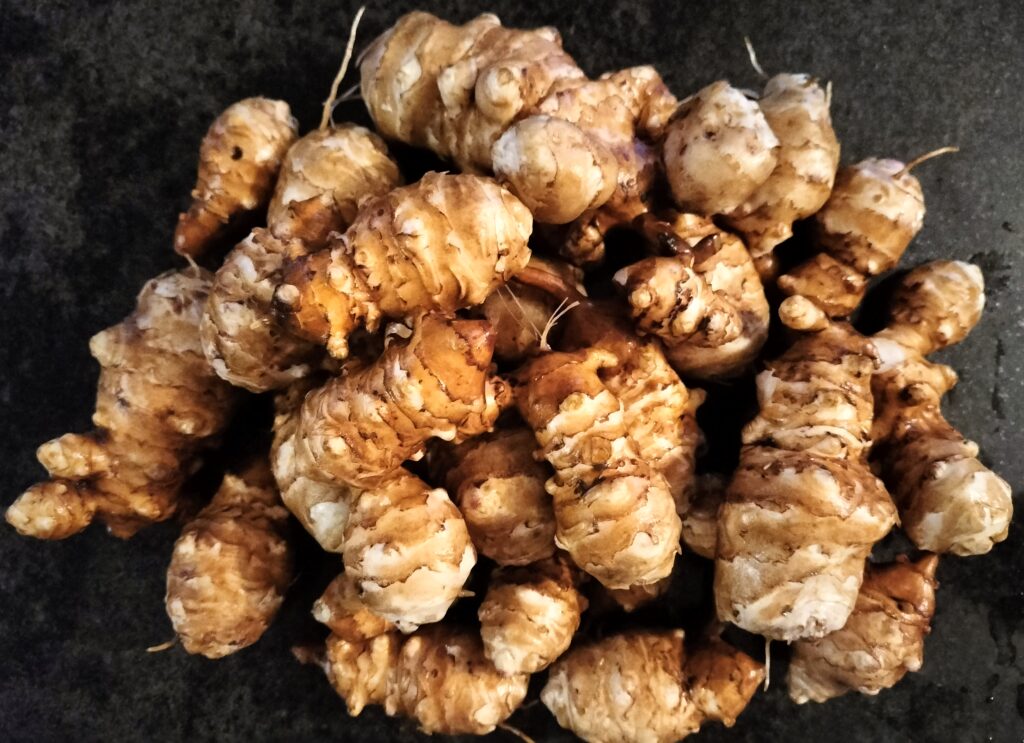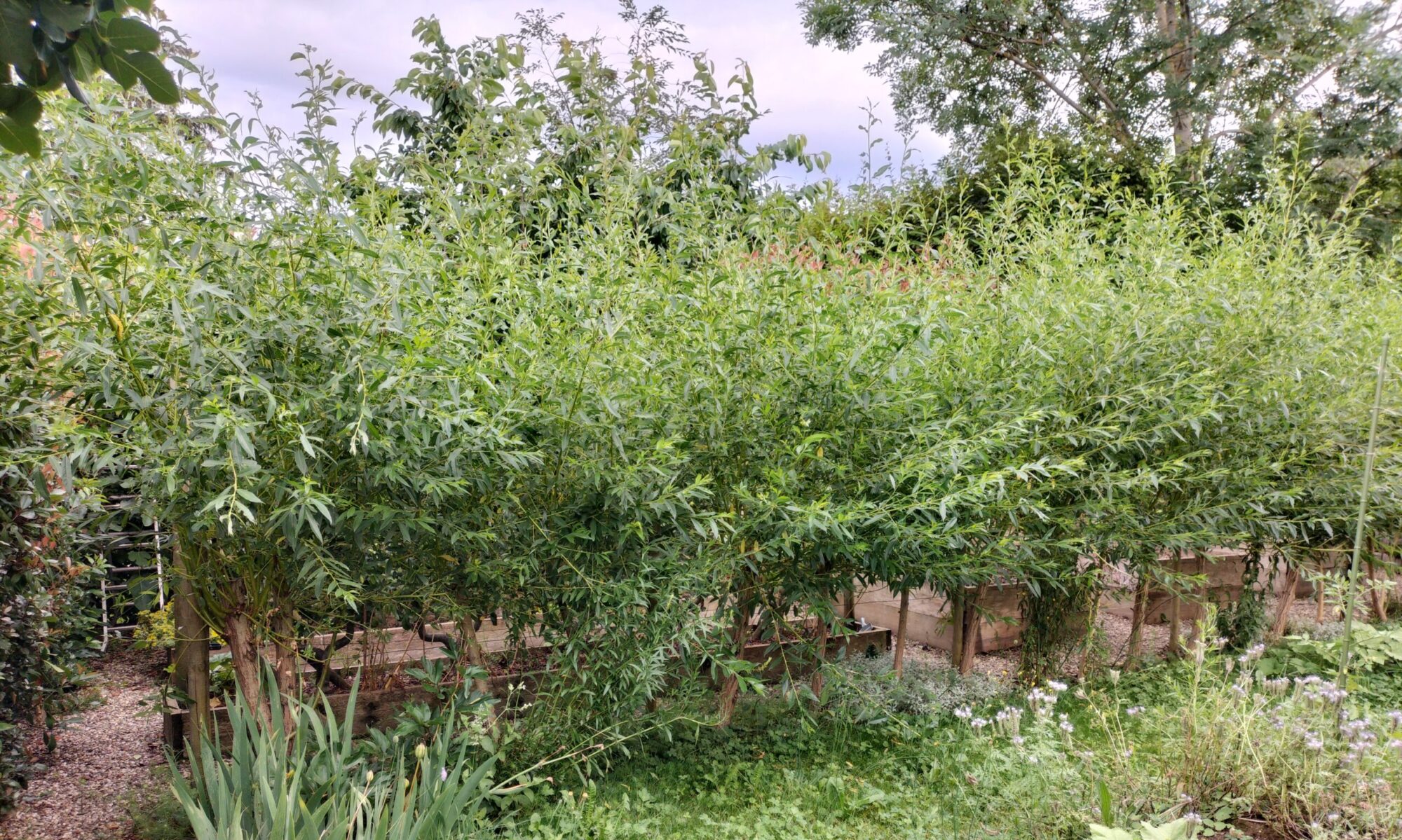
A fine harvest of Jerusalem artichokes, and what I didn’t find will be a gift to the next tenders of my garden (whether they like it or not!)
It is a fact, that for me to live, something else must die – even if it is only the death of a carrot, ripped out of the ground before it has a chance to produce seeds and generate more life. This is a simple example, but what about the deaths we aren’t generally confronted with, but without which our way of life would be impossible? I’m thinking in particular of the impact on people and planet of our consumeristic lifestyles.
In her brilliant book Blood Over Bright Haven, M. L. Wang confronts this issue, as well as the interconnected issues of feminism, racism and colonialism. The story is set in a fantasy world led by an intellectual elite of mages, whose work is defined and justified by religious precepts handed down since the foundation of the society. The main character, Sciona, is the first woman to enter the corridors of magical power. What she discovers there is more than she had bargained for, and her commitment to truth sets her on a path with no happy ending.
Although worth reading for the story itself, this book is even more significant for the way it makes you think and draw your own parallels. It articulates the challenges we are facing at this time in history in a stark and powerful way, bringing into focus what we prefer not to think about. She is not gentle with her readers, and some might think she pushes too far, but I think she exaggerates to make a valid point.
The story doesn’t resolve the issues raised, but I love the way it honestly addresses the challenges and consequences of ‘lifting the veil’ on what’s really going on. My favourite quote: Sciona was proof that hope didn’t have to mean living to the end of the story.
